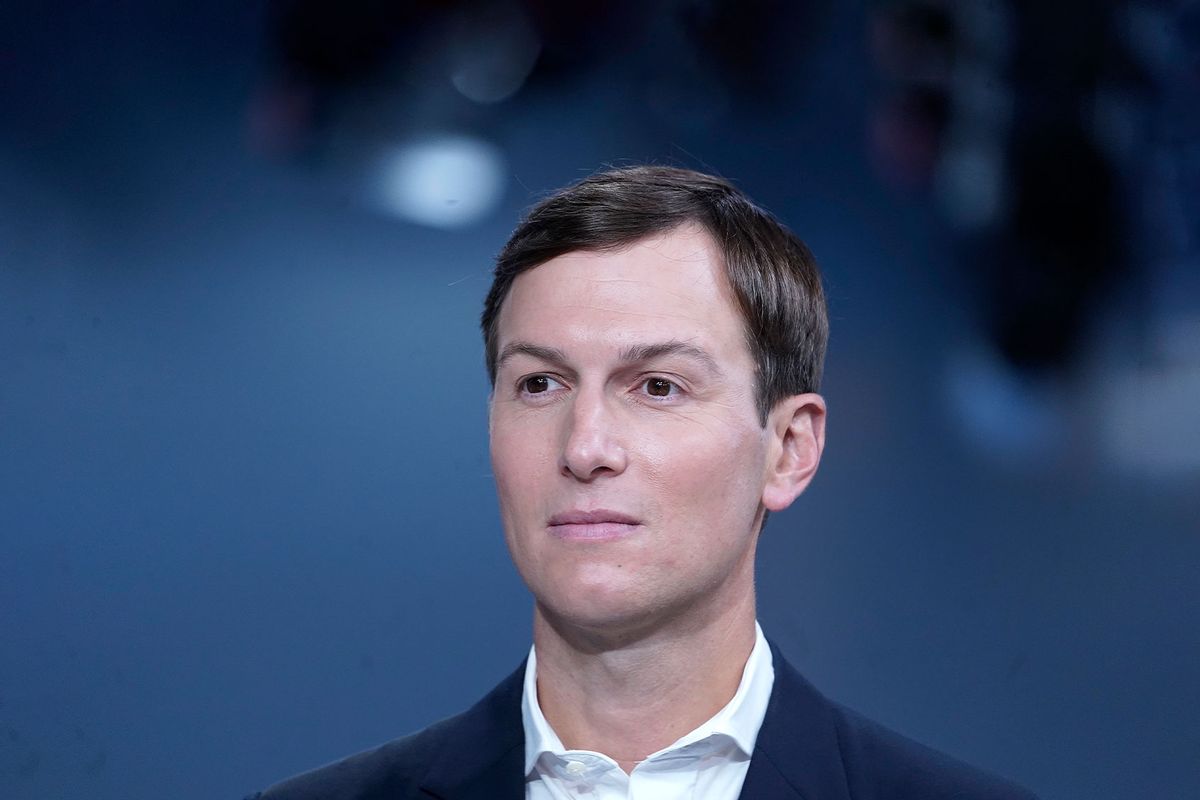The Senate Finance Committee is stepping up its investigation of Affinity Partners, an investment firm owned by former President Donald Trump's son-in-law and advisor Jared Kushner that has been receiving funds from Saudi Arabia and other foreign governments. Committee Chairman Ron Wyden, D-Oregon, said new findings suggest the firm could amount to a compensation scheme designed to skirt federal disclosure requirements.
"While I appreciate Affinity’s cooperation in this matter thus far, the information provided has heightened my concerns that investments in funds managed by Affinity create unprecedented conflicts of interest, and that Affinity’s investors may not be motivated by commercial considerations, but rather the opportunity to funnel foreign government money to members of President Trump’s family, namely Jared Kushner and Ivanka Trump," Wyden wrote in a letter to the company.
According to a press release from the committee, its investigation has found that Affinity pocketed as much as $157 million from foreign clients, including $87 million from the Saudi government alone. While Affinity is not unique among investment firms in charging fees for committed funds, the release noted that its fee structure is unusually high, especially in light of current market trends and "the relative inexperience of Kushner and the firm’s Trump-connected employees in the industry." Reporting by news outlets has found that most of Kushner's investors are people he worked with as a senior advisor in Trump's White House.
As of July 2024, Affinity generated no return on investment and deployed only a small amount of capital, with not "a penny of earnings" going back to its clients, per the committee. Saudi Arabia's own investment advisors deemed Affinity to be "unsatisfactory in all aspects," only to be overruled by a board led by Crown Prince Mohammed bin Salman.
But the firm could provide something else for its investors: leverage over a potential Trump administration through Kushner and Affinity's cadre of employees connected to the previous Trump White House. Affinity confirmed that investors, including foreign government officials, have worked with the company on real estate deals and can renegotiate their investment plans or withdraw all of their funds starting in August 2026, giving them influence over the finances of a potential second-term president's family.
The Finance Committee uncovered this trove of information via investigative tools and public reporting rather than legally-required disclosure, as a loophole appears to have allowed Affinity to take undisclosed money from foreign actors for "investment advisory services."
In his letter, Wyden asked 21 separate questions to Affinity regarding their financial dealings, with answers expected no later than October 9.
Read more



Shares